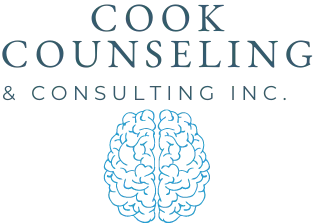Ever feel like your brain is overloaded? You meticulously choose your morning coffee, agonize over the perfect outfit, then reach the office only to struggle with even the simplest tasks? This might be decision fatigue at play.
What is Decision Fatigue?
Imagine your willpower as a muscle. The more you use it, the more tired it gets. Decision fatigue is the feeling of mental exhaustion that comes from making too many choices, big or small. With each decision, we expend mental resources, leading to impaired judgment and difficulty making high-quality choices later on.
Our brains are wired for efficiency. Making decisions requires cognitive effort, activating areas like the prefrontal cortex, which is responsible for planning and reasoning. When we’re constantly bombarded with choices, these resources get depleted, leading to a state of decision fatigue.
Symptoms of Decision Fatigue
Here are some signs you might be experiencing decision fatigue:
Difficulty concentrating: The mental strain of making decisions can make it hard to focus on tasks.
Impulsiveness: Exhausted decision-making muscles can lead to impulsive choices as you seek a shortcut to avoid further mental effort.
Irritability: Being constantly stretched thin by decisions can make you more prone to frustration and short tempers.
Indecisiveness: Paradoxically, decision fatigue can also lead to a state of analysis paralysis, where even minor choices seem overwhelming.
Reduced creativity: The mental resources needed for creative problem-solving can be depleted by decision fatigue.
The Domino Effect of Decision Fatigue
Decision fatigue doesn’t just impact your mood and productivity; it can have consequences beyond the immediate situation. Studies have shown a link between decision fatigue and:
Poor financial decisions: Exhausted decision-making muscles can make us more susceptible to impulsive spending or neglecting financial goals.
Unhealthy eating habits: Decision fatigue affects our ability to make healthy food choices, leading to reliance on readily available, often less healthy options.
Relationship strain: Constant decision-making can spill over into personal interactions, leading to impatience and conflict with loved ones.
Combating Decision Fatigue: Strategies for a More Mindful You
The good news is that decision fatigue can be managed, and here are some strategies to help you:
Reduce unnecessary choices: Simplify your routine. Create a capsule wardrobe, have a designated breakfast, or plan your meals in advance.
Schedule important decisions: When your brain is fresh, tackle complex choices that require more effort and focus. Leave routine tasks for later in the day.
Delegate and automate: Whenever possible, delegate decisions to others or utilize technology. Meal planning apps, shopping lists, and automatic bill payments can ease the decision load.
Decision Fatigue: The Key Takeaway
Decision fatigue is a real phenomenon that has consequences for our mental well-being and overall effectiveness. By becoming aware of its symptoms and implementing strategies to reduce its impact, we can make better choices for ourselves and build environments that support clear thinking. Remember, a mindful approach to decision-making empowers us to utilize our brainpower effectively and navigate the demands of daily life with greater clarity and purpose.
References
The Decision Lab. (2023, September 12). Decision fatigue. https://www.ncbi.nlm.nih.gov/pmc/articles/PMC6119549/
Psychology Today. (2023, September 9). Is decision fatigue real? https://www.psychologytoday.com/intl/blog/a-funny-bone-to-pick/202301/decision-fatigue-and-what-to-do-about-it

